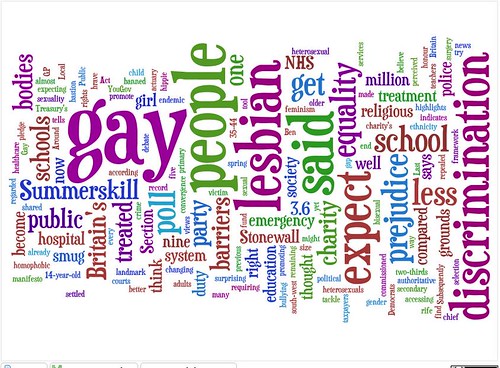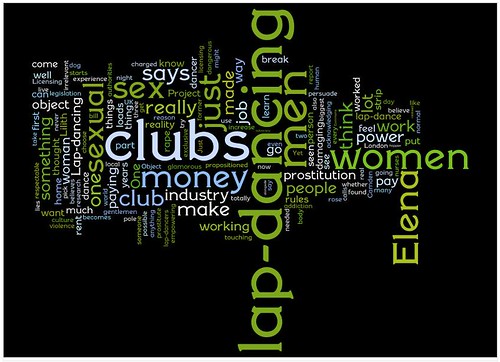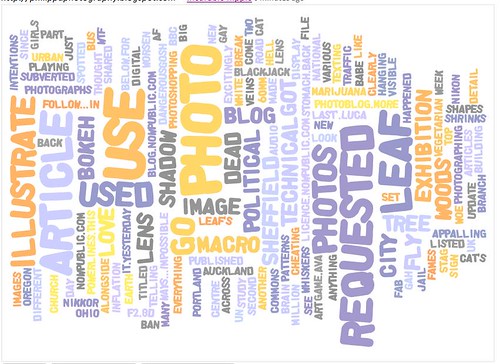
Friday, August 08, 2008
Wednesday, August 06, 2008
Tuesday, August 05, 2008
Diagnosis Research
Posted by
Anonymous
at
7:01 pm
At a hospital appointment last week, I received a diagnosis of sensorimotor axonal neuropathy. Possible causes they are looking at are medication-related, coeliac disease, and vasculitis. We know that I don't have diabetes or alcoholism, which are the most common causes.
So, of course, I'm doing all the googling. Amongst others, I have learned these two things:
1)
2)
More seriously of course, it is good to finally have a diagnosis. Just need to try and get to the bottom of what's causing it, to be able to find out if it can be treated.
So, of course, I'm doing all the googling. Amongst others, I have learned these two things:
1)
With exception of the Roman Catholic Church, most mainline Christian churches offer their communicants gluten-free alternatives to the sacramental bread, usually in the form of a rice-based cracker or gluten-free bread. These include United Methodist, Christian Reformed, Episcopal, Lutheran, The Church of Jesus Christ of Latter-day Saints, and many others.
Roman Catholic doctrine states that for a valid Eucharist the bread must be made from wheat. [...] On August 22, 1994, the Congregation for the Doctrine of the Faith apparently barred coeliacs from ordination, stating, "Given the centrality of the celebration of the Eucharist in the life of the priest, candidates for the priesthood who are affected by coeliac disease or suffer from alcoholism or similar conditions may not be admitted to holy orders." After considerable debate, the congregation softened the ruling on 24 July 2003 to "Given the centrality of the celebration of the Eucharist in the life of a priest, one must proceed with great caution before admitting to Holy Orders those candidates unable to ingest gluten or alcohol without serious harm."
2)
In patients with an aggressive, evolving polyneuropathy or a specific paraneoplastic syndrome, additional testing for an occult malignancy is often performed(my bold - am I possessed by some kind of ghost with cancer?!)
More seriously of course, it is good to finally have a diagnosis. Just need to try and get to the bottom of what's causing it, to be able to find out if it can be treated.
Sunday, July 27, 2008
I've been Stumbling.
Posted by
Anonymous
at
11:16 pm
StumbleUpon...

from Brad Barrett's Iraq Paper. It seems the tutor *really* wanted a specific answer!

Made at flashface.ctapt.de. It kind of looks like me.
Five minute chocolate cake
Bubbles game. I used to have this on my phone, highly addictive.

from Brad Barrett's Iraq Paper. It seems the tutor *really* wanted a specific answer!

Made at flashface.ctapt.de. It kind of looks like me.
Five minute chocolate cake
Bubbles game. I used to have this on my phone, highly addictive.
Monday, July 21, 2008
Wordle.net
Posted by
Anonymous
at
12:26 pm
I've been having a lot of fun with this new toy
From this blog in general.

From this Stonewall post

From this post about lapdancing

From my photography blog

From this blog in general.

From this Stonewall post

From this post about lapdancing

From my photography blog

Wednesday, July 16, 2008
Saturday, May 24, 2008
Last Night
Posted by
Anonymous
at
6:37 pm
11.30pm - go to bed. Take night meds, include painkillers for toothache.
12.30am - going insane with toothache. Smear orajel over teeth.
1am - do three Buddhist pain management meditations.
1.30am - smear orajel over teeth and gums.
2am - getting insaner. Pain pain pain!
2.30am - cry.
3am - run a bath, get in the bath, hope the heat will soothe and relax. It doesn't.
3.45am - google 'pain management'.
4am - smear orajel over teeth and gums.
4.15am - cry.
4.30am - get the instruction manual out for the brand new microwave, learn how to use it. Heat up wheat bag.
4.45am - slight relief from the heat of the wheat bag! Yey!
5.30am til 6am - SLEEP!
6am - wake up throbbing, agony, argh. Count down til 7am painkillers.
7am - painkillers. While it's a relief to take them, realise that it'll be another 45 minutes til they have any effect, which they didn't last night.
7.30am - cry. Smear orajel over teeth.
8am til 11am - listen to radio, try not to cry, moan, groan or rock.
11.30am til 1pm - SLEEP!
1pm - bastard evil bastard evil electricity meter reader wakes me up by ringing the bell incessantly.
1pm til now - ouch, yuck, grim, tired, pain, ARGH.
12.30am - going insane with toothache. Smear orajel over teeth.
1am - do three Buddhist pain management meditations.
1.30am - smear orajel over teeth and gums.
2am - getting insaner. Pain pain pain!
2.30am - cry.
3am - run a bath, get in the bath, hope the heat will soothe and relax. It doesn't.
3.45am - google 'pain management'.
4am - smear orajel over teeth and gums.
4.15am - cry.
4.30am - get the instruction manual out for the brand new microwave, learn how to use it. Heat up wheat bag.
4.45am - slight relief from the heat of the wheat bag! Yey!
5.30am til 6am - SLEEP!
6am - wake up throbbing, agony, argh. Count down til 7am painkillers.
7am - painkillers. While it's a relief to take them, realise that it'll be another 45 minutes til they have any effect, which they didn't last night.
7.30am - cry. Smear orajel over teeth.
8am til 11am - listen to radio, try not to cry, moan, groan or rock.
11.30am til 1pm - SLEEP!
1pm - bastard evil bastard evil electricity meter reader wakes me up by ringing the bell incessantly.
1pm til now - ouch, yuck, grim, tired, pain, ARGH.
Sunday, May 11, 2008
Things You Really Need to Look At.
Posted by
Anonymous
at
9:29 pm
Carved crayons - w-o-o-o-w.
Google in 20 years - genius, I need this for my house.
I love tattoos, but... - some of these aren't so bad but some are so, so, so bad.
Another Funny Tattoo for the html geeks among us.
Sins - what happens with different combinations of the seven deadly sins.
Hillary. Normally avoiding all mention of the endless US elections, had to share this one.
15 hilarious church signs - Not sure I'd go with 'hilarious', but some raised a smile, especially the google reference.
Vandals like tetris too
15 Spectacular Lightning Images - what it says on the tin.
Last Day on Earth - yowch, someone's in trouble...
Talkin' Serious Cute - indeed. Serious cute.
The Man She Forgot to Google
Along the Autobahn. Don't speed. Really don't speed.
Google in 20 years - genius, I need this for my house.
I love tattoos, but... - some of these aren't so bad but some are so, so, so bad.
Another Funny Tattoo for the html geeks among us.
Sins - what happens with different combinations of the seven deadly sins.
Hillary. Normally avoiding all mention of the endless US elections, had to share this one.
15 hilarious church signs - Not sure I'd go with 'hilarious', but some raised a smile, especially the google reference.
Vandals like tetris too
15 Spectacular Lightning Images - what it says on the tin.
Last Day on Earth - yowch, someone's in trouble...
Talkin' Serious Cute - indeed. Serious cute.
The Man She Forgot to Google
Along the Autobahn. Don't speed. Really don't speed.
Tuesday, May 06, 2008
Wednesday, April 23, 2008
So, so wrong
Posted by
Anonymous
at
2:11 pm
in so many different ways...
Impossible Babe of the Day.
Do we go with the political? Having a 'babe of the day' at all?
The technical? That photoshopping is appalling - her back would break and her shadow actually has a stomach.
Back to the political? What on earth are we telling women and girls about how they should look?
Back to the technical? What the hell happened?
Gah!
Impossible Babe of the Day.
Do we go with the political? Having a 'babe of the day' at all?
The technical? That photoshopping is appalling - her back would break and her shadow actually has a stomach.
Back to the political? What on earth are we telling women and girls about how they should look?
Back to the technical? What the hell happened?
Gah!
Sunday, April 20, 2008
Monday, April 07, 2008
Monday Mumbles
Posted by
Anonymous
at
8:07 pm
The 100 Greatest Female Artists of Rock'n'Roll has been published.
How is Celine Dion there and not Nina Simone? I mean really, how is Nina Simone *not* on there? It's obscene!
Still on music, it's surprising just what can be created using only sounds from Windows XP and Windows 98.
If you're running short of toilet paper, why not try the 100% recycled Shit Be Gone! That is seriously its name. I do like it when you know where you are with a product, and exactly what it will do!
I'm sure I'm not the only one whose teenage years were characterised by Judy Blume and all her books and characters. Interesting to see, then, that two of her books have been updated to reflect more recent practise in sexual health. And one of them's Forever , which was the one we all thought was exceedingly rude. Ah, the innocence!
, which was the one we all thought was exceedingly rude. Ah, the innocence!
New Photo Blog Updates
The Orton Effect
Photo to Drawing: Raspberries
Spell With Flickr
More Orton Effect
Fake Model Photography
Same Photo, Different Treatments
How is Celine Dion there and not Nina Simone? I mean really, how is Nina Simone *not* on there? It's obscene!
Still on music, it's surprising just what can be created using only sounds from Windows XP and Windows 98.
If you're running short of toilet paper, why not try the 100% recycled Shit Be Gone! That is seriously its name. I do like it when you know where you are with a product, and exactly what it will do!
I'm sure I'm not the only one whose teenage years were characterised by Judy Blume and all her books and characters. Interesting to see, then, that two of her books have been updated to reflect more recent practise in sexual health. And one of them's Forever
New Photo Blog Updates
The Orton Effect
Photo to Drawing: Raspberries
Spell With Flickr
More Orton Effect
Fake Model Photography
Same Photo, Different Treatments
Sunday, April 06, 2008
Duel / Dangerous Pathways.
Posted by
Anonymous
at
6:22 pm
I don't know if you've ever seen the film Duel, but despite it having virtually no dialogue, not much of a plot, and a tiny budget, it is one of the scariest films you could ever see.
This, my friends, is just the same.
This, my friends, is just the same.
Saturday, April 05, 2008
Sic!
Posted by
Anonymous
at
12:03 pm
From worldwidewords
Sic!
-------------------------------------------------------------------
"Don't most people know this already?" was Tom Gould's comment on a
front-page teaser headline advertising an article inside (what's
the newspaper term for these?) that appeared in The Tennessean on
26 March: "Don't expect smart car dealer soon."
What a difference a misplaced hyphen makes. Annie Clarke reports
that the London freesheet Metro included a headline on 27 March:
ANTI-YOUTH CRIME EVENT.
"The instructions on a carpet cleaner," e-mailed Pete Swindells,
"caused me momentary confusion: 'Empty when full'."
Department of athletic horticulture. Henry Drury was reading the
Home & Living section of the Sunday Telegraph for 30th March and
found this property advert: "Paradise Cottage, West Berkshire, a
glorious Grade II listed four bedroom hotchpotch of a cottage.
Gardens and a stream run through the property."
Bankers struggle against their reputation for unfeeling arrogance
but error messages like the one that Roger Jones encountered on the
Barclays Bank Web site don't help: "We suggest you try to log in
later and apologise for any inconvenience this may cause."
Thursday, April 03, 2008
Not really ok
Posted by
Anonymous
at
4:38 pm
It's a year today since Helen died.
Well, probably. The inquest couldn't give an exact date, they gave a week's time span, but from the evidence given I do think it was the 3rd.
I miss her every day. Every day. But today feels even worse. I feel weighed down with sadness.
Well, probably. The inquest couldn't give an exact date, they gave a week's time span, but from the evidence given I do think it was the 3rd.
I miss her every day. Every day. But today feels even worse. I feel weighed down with sadness.
Tuesday, April 01, 2008
incurable hippie is 'a convergence of the worst aaspects (sic) of the religious right and feminism'
Posted by
Anonymous
at
6:54 pm
I am, apparently, a tool of the religious right. And the brave 'Anonymous' tells *me* to get a grip!
In other, less surprising, news:
In other, less surprising, news:
Homophobia rife in British society, landmark equality survey finds.
· Bullying in schools worse than for older generations
· Public bodies complacent, says gay rights charity
Britain's 3.6 million lesbian, gay and bisexual people see themselves confronted by huge barriers of prejudice at every level of society, according to the first authoritative poll of their views.
The poll, commissioned by the equality charity Stonewall, which said some public bodies were too "smug" about their record on discrimination, indicates that the schoolyard is the most entrenched bastion of prejudice.
The YouGov poll of 1,658 gay adults found homophobic bullying in schools is more prevalent now than in previous decades. Around 30% of lesbian and gay people expect to encounter discrimination if they were to try to enrol a child at primary or secondary school, and 80% believe they would have difficulty if they were to apply to become a school governor.
The NHS, police and courts are doing better than the education system in combating discrimination. However, a significant minority of gay people expect to be treated less well at a GP surgery or during an emergency admission to hospital.
One in four think they will be treated less fairly by police if they become a victim of hate crime, while one in five expect to find it harder than a heterosexual person to get social housing, and nine in 10 expect barriers to becoming a foster parent.
The poll also suggested prejudice is endemic in political life, with most lesbian and gay people expecting discrimination if they seek selection by a party to run for parliament. Nearly nine in 10 think they would face such barriers from the Conservative party, 61% from the Labour party and 47% from the Liberal Democrats.
Ben Summerskill, the charity's chief executive, said: "Too many public services are a bit too smug about the progress made towards fair treatment for the lesbian and gay taxpayers who help fund them.
"Last spring we heard from a 14-year-old girl who had - incautiously - shared with a teacher at a faith school the thought that she might be gay. Subsequently the girl has been required to sit outside the changing room at the beginning and end of sports lessons while the 'normal' children get changed."
Of those polled, two-thirds of lesbian and gay people under 19 said they were bullied at school on grounds of sexuality, compared with half of those aged 35-44 and only a quarter of those over 55.
Stonewall said the problem was exacerbated in schools when teachers were banned by Section 28 of the 1988 Local Government Act from doing anything that could be perceived as promoting homosexuality. Section 28 was repealed in 2003, but the charity says the education system is years behind in its efforts to tackle prejudice.
Across Britain, one in 14 lesbian and gay people expect to be treated less well than heterosexuals when accessing healthcare. Gay women are almost twice as likely to expect discrimination on grounds of sexual orientation.
There are big regional differences in perceptions of discrimination in the NHS. In Wales, 16% thought they would get inferior treatment if they were admitted to hospital in an emergency, compared with 2% in the south-west.
Summerskill said: "The research highlights the one remaining gap at the heart of Britain's legislative equality framework. There is not yet a duty on public bodies requiring them to promote equality of service for gay people in a way that already exists for gender, ethnicity and disability. We'll now be pressing the government to honour its outstanding manifesto pledge to introduce such a duty."
Summerskill said he regarded the debate about the size of Britain's lesbian and gay population as having been settled by the Treasury's actuary department, which said it was 6%, or 3.6 million people.
Wednesday, March 26, 2008
Sell-Out.
Posted by
Anonymous
at
10:16 pm
It's that time of year again... the one where for an hour a week I turn into a raving capitalist.
The Apprentice. I just can't help myself! I guess I'm fired.
The Apprentice. I just can't help myself! I guess I'm fired.
Subscribe to:
Comments (Atom)











